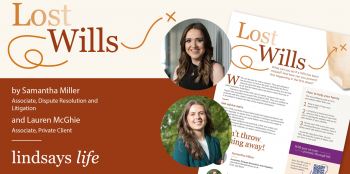The furlough scheme
The Coronavirus Job Retention Scheme (CJRS) commonly referred to as the “furlough scheme” was introduced at the beginning of the Covid-19 pandemic. The scheme allows employers to keep employees on the payroll even if they have had no, or limited, work to do because of COVID-19.
Employers can put employees on temporary leave (“furlough”) and apply for a grant to cover part of the wages for any time spent on furlough. Employees can be placed on full time furlough or flexible furlough which means they can work some of their usual hours.
Employers claiming from the furlough scheme must ensure that they comply with the strict rules of the scheme including that employees must not carry out any work related to their employer whilst on full time furlough. Employers are however allowed to volunteer or work for other organisations and participate in training to keep skills and learning up to date.
On 3rd March, the Chancellor of the Exchequer announced that the furlough scheme has been extended until 30th September 2021. However, this was coupled with a £100m investment in a UK-wide specialist taskforce to tackle fraud across all Covid-19 support packages, including the furlough scheme, and expansion in the recruitment of fraud investigators.
Are you committing furlough fraud?
The responsibility for compliance with the furlough scheme lies with employers. Employers may have overclaimed if they received assistance through the furlough scheme for employees who were still carrying out work for them, if they received more money than entitled to, or if circumstances changed after making the claim which altered the sum that the employer was entitled to.
Employers whom believe that they have been overpaid can avoid penalties by notifying HMRC within the latest of either 90 days after the date of receiving the grant or 90 days after a change in circumstances.
How are HMRC penalties issued?
If an employer is found to have been overpaid and has not declared it within the 90-day window, HMRC may issue an income tax charge. At the very least this will be the amount of the furlough scheme payment that the employer was not entitled to, including any amounts that weren’t used on furloughed employee payments, NICs or pension contributions within a reasonable period.
The charge will also depend on whether HMRC believe the employer intentionally claimed the overpayment. If they determine it was ‘deliberate and concealed’ a penalty of up to 100% will be added to the amount to be repaid. Details may also be published along with other deliberate tax defaulters.
Employers will be given 30 days to pay the charge and interest will accrue on late payments. If the company has become insolvent and the tax cannot be recovered, company officers who knew about the overclaimed grant may be liable to pay it back instead.
If an employer is found to be acting fraudulently, it is also possible that there will be criminal investigation and prosecution. Offences include common law fraud, false accounting, conspiracy to defraud and money laundering. A corporate entity may be investigated for the strict liability offence of failing to prevent the facilitation of tax evasion.
What should employers be doing now?
Whether erroneous claims were made as a result of a misunderstanding of the rules or deliberately, employers have a narrow window to rectify these matters, or risk facing serious consequences.
Businesses should take time to audit the flow of funds associated with furlough payments and take advice where necessary.
Turning a blind eye in the hope that HMRC will not find out could lead to serious penalties, criminal conviction, imprisonment and a damaged reputation. This is also a particularly risky strategy given the resources HMRC are pledging to uncover these offences.






